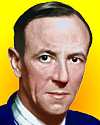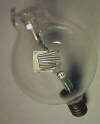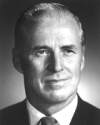 | TODAY IN SCIENCE HISTORY NEWSLETTER - 20 OCTOBER |
| Feature for Today |
| Book of the Day | |
| |
| Quotations for Today | |
 | "He was a severe critic of English usage and seemed to carry in his head the whole of Roget's Thesaurus of English Words and Phrases." - Remark about Sir James Chadwick, (born 20 Oct 1891) by one of his students, Mark Oliphant in an article in the Bulletin of the Atomic Scientists. (source) |
 | (About her research on the genetics of mutant fruit flies) "I immediately loved working with flies. They fascinated me, and followed me around in my dreams." |
 | "The only object of theoretical physics is to calculate the results that can be compared with experiment ... It is quite unnecessary that any satisfactory description of the whole course of the phenomena should be given." |
| QUIZ | |
| Before you look at today's web page, see if you can answer some of these questions about the events that happened on this day. Some of the names are very familiar. Others will likely stump you. Tickle your curiosity with these questions, then check your answers on today's web page. | |
| Births | |
 |  Sir James Chadwick, born 20 Oct 1891, was an English physicist, who received the Nobel Prize for Physics (1935) for the discovery of the neutron, then a new nuclear particle. He led the UK's work on the atomic bomb in WW II, and was knighted in 1945. Sir James Chadwick, born 20 Oct 1891, was an English physicist, who received the Nobel Prize for Physics (1935) for the discovery of the neutron, then a new nuclear particle. He led the UK's work on the atomic bomb in WW II, and was knighted in 1945. At which university laboratory was the neutron discovered by Chadwick? At which university laboratory was the neutron discovered by Chadwick? |
| Deaths | |
 |  P.A.M. Dirac (1902-1984) was an English physicist and mathematician. In 1933 he shared the Nobel Prize for Physics with the Austrian physicist Erwin Schrödinger. P.A.M. Dirac (1902-1984) was an English physicist and mathematician. In 1933 he shared the Nobel Prize for Physics with the Austrian physicist Erwin Schrödinger. What was his great contribution to physics? What was his great contribution to physics? |
| Events | |
 |  On 20 Oct of a certain year, Dr. Lee DeForest (26 Aug 1873 - 30 Jun 1961), one of the "fathers of radio," announced his three-element electrical vacuum tube (now known as a triode) to a meeting of the American Institute of Electrical Engineers He had discovered that when a mesh, or grid, of wire was placed between the filament and collector "plate" in a diode tube (first made by J. Ambrose Fleming, 1904), a large voltage-amplifying effect could be produced. On 20 Oct of a certain year, Dr. Lee DeForest (26 Aug 1873 - 30 Jun 1961), one of the "fathers of radio," announced his three-element electrical vacuum tube (now known as a triode) to a meeting of the American Institute of Electrical Engineers He had discovered that when a mesh, or grid, of wire was placed between the filament and collector "plate" in a diode tube (first made by J. Ambrose Fleming, 1904), a large voltage-amplifying effect could be produced. In what decade was the triode announced? In what decade was the triode announced? |
 |  On 20 Oct 1970, American agricultural pioneer Norman Borlaug received the Nobel Prize for his contribution to the "green revolution" that increased grain production throughout the Third World by perfecting and introducing new strains of wheat and rice crops. On 20 Oct 1970, American agricultural pioneer Norman Borlaug received the Nobel Prize for his contribution to the "green revolution" that increased grain production throughout the Third World by perfecting and introducing new strains of wheat and rice crops. Which category of Nobel Prize was he awarded? Which category of Nobel Prize was he awarded? |
| Answers |
When you have your answers ready to all the questions above, you'll find all the information to check them, and more, on the October 20 web page of Today in Science History. Or, try this link first for just the brief answers. Fast answers for the previous newsletter for October 19: theory on the later evolutionary stages of massive stars; New Zealand; John Atanasoff; 82 kg. |
| Feedback |
 If you enjoy this newsletter, the website, or wish to offer encouragement or ideas, please send feedback by using your mail reader Reply button. If you enjoy this newsletter, the website, or wish to offer encouragement or ideas, please send feedback by using your mail reader Reply button. |
--
If you do not want to receive any more newsletters, this link
To update your preferences and to unsubscribe visit this link
If you do not want to receive any more newsletters, this link
To update your preferences and to unsubscribe visit this link
! !



Δεν υπάρχουν σχόλια:
Δημοσίευση σχολίου